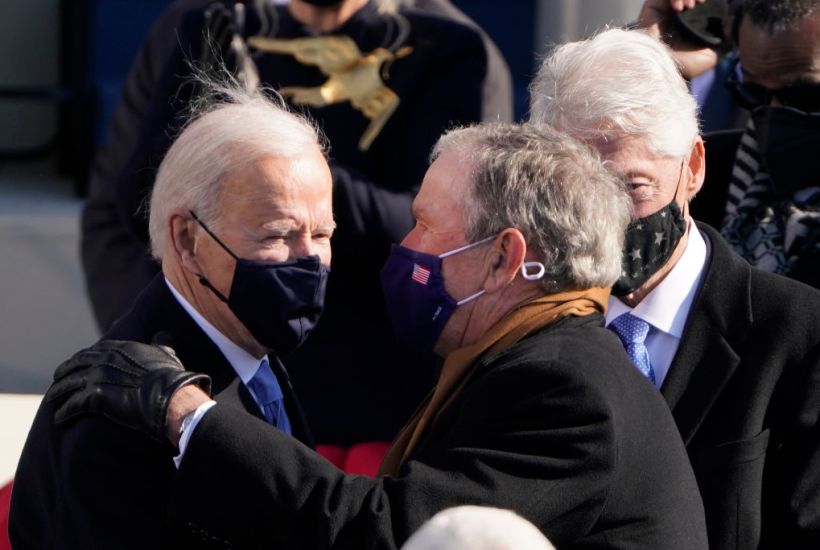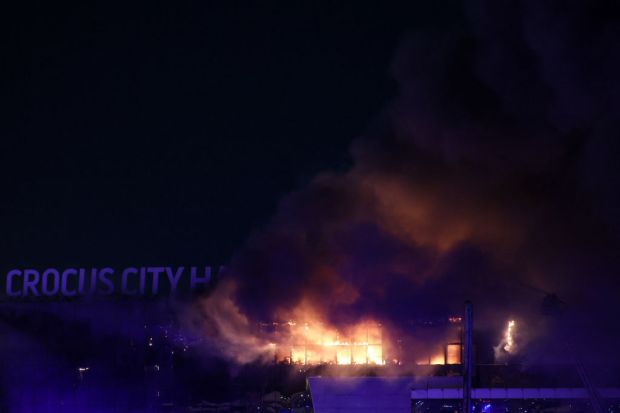The world doesn’t hear a lot from George W. Bush these days. The former president of the United States has spent his post-presidential life in a cozy, somewhat secluded existence on his Texas ranch in Crawford, about a two-hour drive south of Dallas. Other than issuing the occasional statement and urging Americans to get vaccinated, Bush largely spends his time painting or hanging out with his wife, former First Lady Laura Bush.
Apparently, though, the nearly-complete U.S. withdrawal from Afghanistan is too much for the ex-president to bear. Speaking to German television broadcaster Deutsche Welle, Bush all but excoriated president Joe Biden for pulling the troops out and ending the longest war in U.S. history.
The consequences of the withdrawal, Bush said, ‘are going to be unbelievably bad’. Expanding on his thoughts, Bush lamented how all of the social progress that Afghanistan has made is now at risk of falling apart:
‘It’s unbelievable how that society changed from the brutality of the Taliban, and all of a sudden — sadly — I’m afraid Afghan women and girls are going to suffer unspeakable harm.’
What Bush left unsaid, however, was just as revealing: other than pontificating about the consequences of a full U.S. withdrawal, he either couldn’t or wouldn’t offer a more palpable alternative.
For most Americans and indeed for the Biden administration, the alternative – keeping U.S. forces in the middle of Afghanistan’s 40 year-long civil war to sustain a shaky stalemate and babysit an inept Afghan political class – is an even worse proposition. Everybody talks about the costs of leaving Afghanistan; too few acknowledge the costs of staying put.
To say that the U.S. and its Nato allies made errors in judgment in Afghanistan is like saying dark clouds produce rain. It’s a statement so obvious as to be virtually meaningless. We can talk about the collapse of the Afghan national security forces and the disorganisation at the top of the Afghan government until we are all blue in the face, but the real problem at the core of the U.S. misadventure in Afghanistan is the decision by U.S. officials early on to transform the mission from counterterrorism to a full-blown state-building project. That transformation occurred on George W. Bush’s watch.
Whatever problems Afghanistan now confronts is in large part a byproduct of the crucial decision made in Washington, D.C. nearly 20 years earlier.
The irony of it all is that the U.S. mission in Afghanistan was never supposed to be about constructing a brand new governing and economic system in Kabul. At its very core, the U.S. military objective in Afghanistan was to teach Al-Qaeda and its Taliban hosts a painful lesson: if you are stupid enough to attack Americans, then you better prepare yourself for a quick trip to the afterlife.
Bush’s infamous ‘Wanted: Dead or Alive‘ message to the now deceased Osama bin Laden encapsulated the central goal: eliminate Al-Qaeda’s training camps, kill the most wanted terrorist on the planet, and punish the Taliban for providing shelter to his network.
‘By destroying camps and disrupting communications, we will make it more difficult for the terror network to train new recruits and coordinate their evil plans,’ Bush told the nation on October 7, 2001, the first day of what would be code-named Operation Enduring Freedom.
The miraculous thing about those first few weeks and months was how effective U.S. military power proved to be. By the early winter of 2002, thousands of Al-Qaeda militants were either dead or on the run. The Taliban regime was gone, with many of its fighters killed, hunkering down in Pakistan or trying to convert themselves back to civilian life. Bin Laden barely escaped the torrent of bombs from American B-52s, apologising to his fighters over the radio for putting his followers in such a treacherous position.
The U.S. in effect, achieved what it set out to do. Yet the Bush administration got greedy, naively believing building a functioning, self-sufficient, incorruptible democracy from scratch would be as simple or necessary as wiping out Al-Qaeda in the field. It was this assumption, accompanied with the flawed notion that effective counterterrorism also requires a nation-wide reconstruction and governance project in Afghanistan, that would eventually keep U.S. forces there for the next 20 years. Over time, the U.S. troop level would increase from a few thousand in the early stages of the war to 30,000 in 2006, reaching a crescendo of nearly 100,000 during the Obama administration.
Ensuring that the perpetually weak, dependent-prone Afghan government didn’t fall replaced fighting anti-U.S. terrorism as the sole purpose for the U.S. and foreign presence. How else to explain U.S. and Nato soldiers engaging in foot patrols in strategic backwaters like the Arghandab Valley, where mines and IEDs littered the farms, roads, and buildings?
Fortunately, Joe Biden, who as vice president during the Obama administration was the chief internal voice against throwing more American troops and money into Afghanistan, recognises the futility and sheer insanity of continuing the U.S. troop presence there. If George W. Bush still hasn’t reached the same conclusion, it’s unlikely he ever will.
Got something to add? Join the discussion and comment below.
Get 10 issues for just $10
Subscribe to The Spectator Australia today for the next 10 magazine issues, plus full online access, for just $10.




















Comments
Don't miss out
Join the conversation with other Spectator Australia readers. Subscribe to leave a comment.
SUBSCRIBEAlready a subscriber? Log in